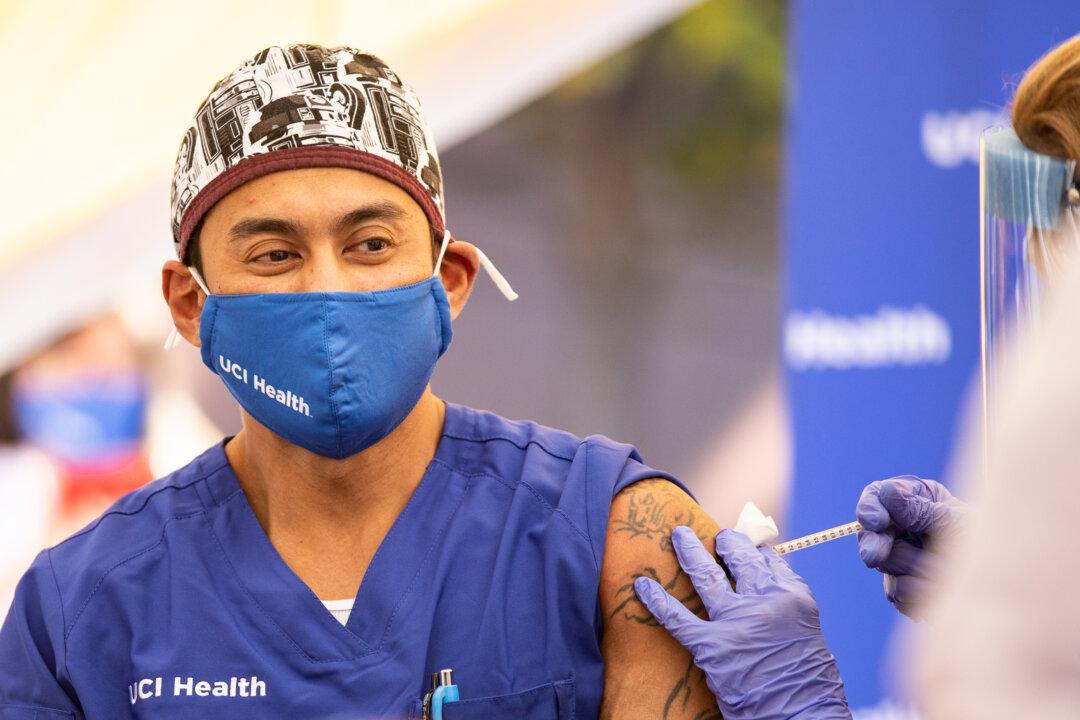COVID-19 vaccines have been available since December 2020 under emergency use authorization. Many people have already rolled up their sleeves to take a shot or two, but the pressure is mounting for more to comply.
Vaccine Mandates Ignore Science, Warns Doctor
One of America's most esteemed doctors and researchers riled by COVID-19 response

Healthcare workers at St. Joseph Hospital in Orange, Calif., on Dec. 16, 2020. John Fredricks/The Epoch Times
|Updated:





